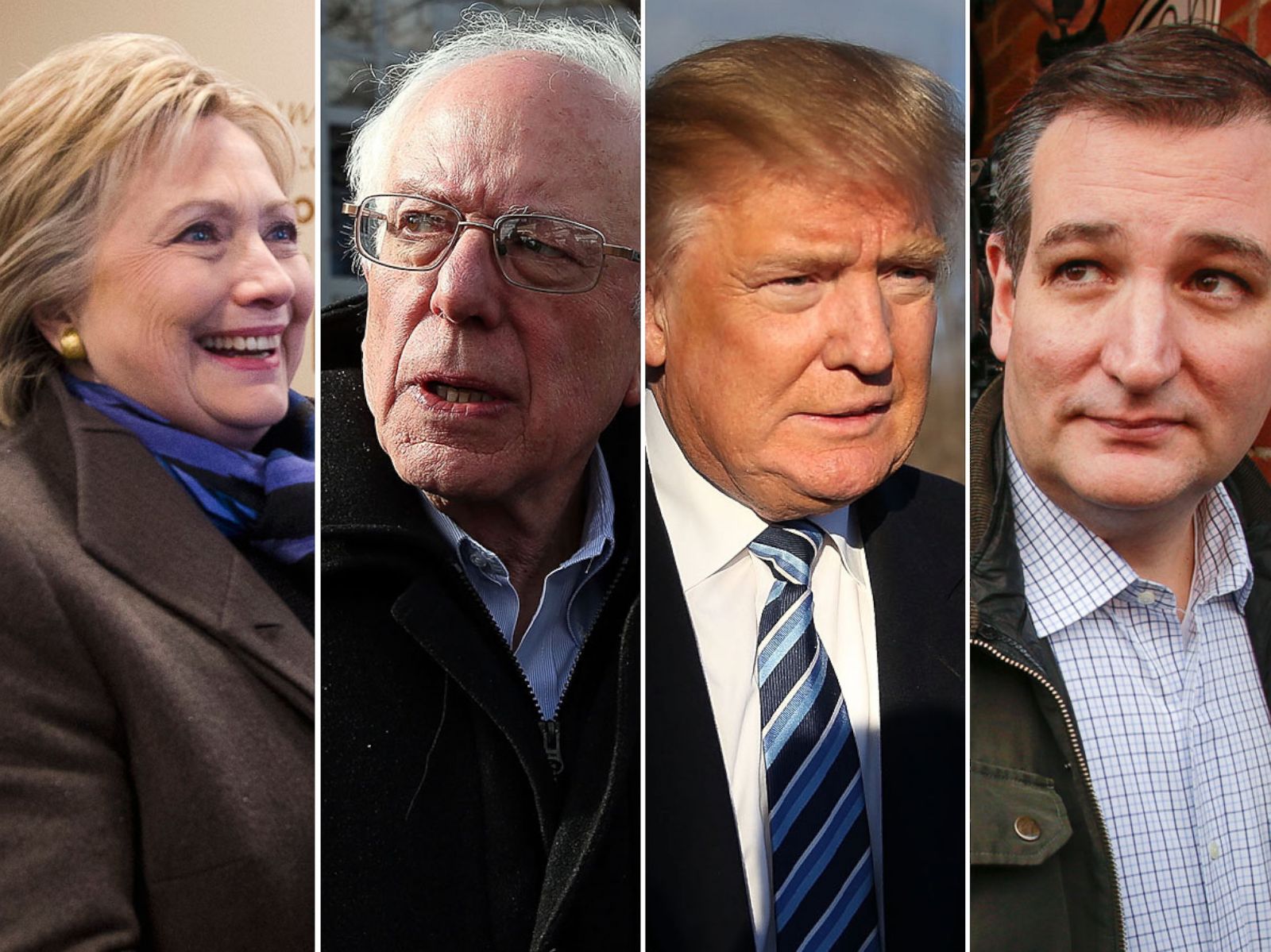The “establishment” of each political party used to simply “pick” their presidential candidates. They wanted the strongest campaigner, so their party could beat the other party. Party delegates were loyal to their party, their clan, their tribe. Not to ideals.
A good example was the selection of Dwight D. Eisenhower (“Ike”). The Five-Star General was a war hero, not an ideologue. Both parties wanted him, but Ike decided to run as a Republican, largely because he thought the Democrats had held the White House for too long–20 years straight, 1933 to 1953.
To underline his own moderation, Bernie Sanders likes to compare himself to Ike, according to the Christian Science Monitor.
Sanders said he isn’t “that much of a socialist compared to Eisenhower” and the room erupted as if on cue, like a sitcom laugh track. . . and the comparison holds true, because under Ike rich Americans paid considerably more tax than they do today. . . during Eisenhower’s two-term presidency from 1953 to 1961, the top marginal tax rate, which affects the highest earning bracket, was 91 percent. It applied to individuals with an annual income of $200,000 or more. . . And that is Sanders’s point. Under Eisenhower, taxes were higher for the upper-class, who weren’t as rich as America’s wealthiest today.. . .
Also, historians would be quick to point out, one of Eisenhower’s greatest achievements as president was the creation of the Interstate Highway System – a massive civic infrastructure project that cost the equivalent of more than $500 billion in today’s dollars. . . Eisenhower acknowledged that “to attain any success it is quite clear that the Federal government cannot avoid or escape responsibilities which the mass of the people firmly believe should be undertaken by it.
Also, in his farewell address, Eisenhower warned the country about the growth of the military-industrial complex, a phrase now decidedly associated with liberalism.
Of course, Ike won handily, because the party was so determined to win. But then democracy happened. The grassroots were not as interested in winning as in ideals. So Conservative Barry Goldwater won the nomination—and was trounced—in 1964; and Liberal George McGovern won the nomination—and was trounced—in 1972.
After that, both parties wanted to assert more control. Democrats, in particular, established a large number of “Superdelegates,” to try to temper the “true believers.”
But now, thanks to television coverage, the primaries have made the grassroots more powerful again. Believe it or not, the Iowa Caucuses were barely mentioned, until Jimmy Carter made his name there in 1980. Now, we watch the primaries as if they were a game–the World Series, Superbowl, and March Madness put together.
Also, thanks largely to Citizens United, the parties are becoming almost irrelevant. SuperpPACs collect and spend a lot more money than the parties, now. Candidates have to pass a litmus test on many issues, even being forced to take Grover Norquist’s pledge not to raise taxes, for example.
All of this has brought us candidates we hate. According to Fox, these are the favorable-to unfavorable ratings of our candidates who might win:
Clinton 39% favorable, 58% unfavorable NET –19%
Sanders 44% favorable, 49% unfavorable NET –5%
Trump 31% favorable, 65% unfavorable NET –34%
Cruz 36% favorable, 53% unfavorable NET –17%
People are beginning to wonder if the primaries are a good idea, question press coverage, and wonder if most people are wise enough to pick a president, according to a new Pew poll.
Only 35% of voters say that the primary system is a good way of determining the best qualified nominee. That is a smaller share than in the 2008 campaign. . .
Voters overwhelmingly say that Trump has received too much news coverage. Three-quarters (75%) of all registered voters say that news organizations have given too much coverage to Trump. . .
Nearly two-thirds (65%) say they have little or no confidence in the public’s political wisdom.
This year has been a disaster for both political parties.
Can the parties regain control of the system? Should they? Or should we trash the whole system and start over?
Donate Now to Support Election Central
- Help defend independent journalism
- Directly support this website and our efforts
